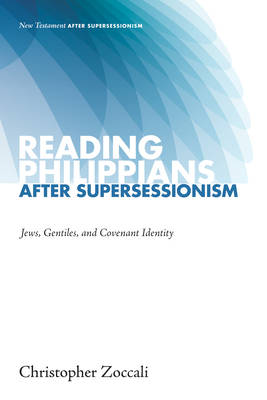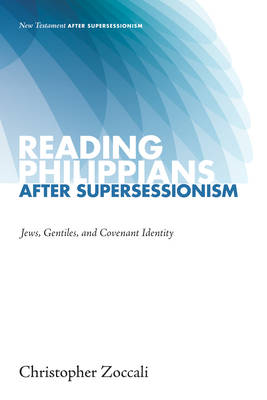
- Afhalen na 1 uur in een winkel met voorraad
- Gratis thuislevering in België vanaf € 30
- Ruim aanbod met 7 miljoen producten
- Afhalen na 1 uur in een winkel met voorraad
- Gratis thuislevering in België vanaf € 30
- Ruim aanbod met 7 miljoen producten
Zoeken
€ 26,95
+ 53 punten
Uitvoering
Omschrijving
Paul's letter to the Philippians has often been read as one of the apostle's clearest denials of his (previous) Jewish identity in order to preempt the "Judaizing" tactics of false teachers who might infiltrate the congregation. But is this really the problem that Paul is confronting? And did Paul really abandon his identity as a Jew in order to "know Christ"? Furthermore, what should Paul's gospel converts understand about their own identity "in Christ"? Zoccali provides fresh answers to these questions, offering a more probable alternative to the traditional view that Christianity has replaced Judaism (supersessionism). Tracing Paul's theology in the light of social theory, Zoccali demonstrates that, for Paul, the ethnic distinction between Jew and gentile necessarily remains unabated, and the Torah continues to have a crucial role within the Christ-community as a whole. Rather than rejecting all things Jewish (or gentile), Paul seeks in this letter to more firmly establish the congregation's identity as members of God's holy, multiethnic people.
Specificaties
Betrokkenen
- Auteur(s):
- Uitgeverij:
Inhoud
- Aantal bladzijden:
- 188
- Taal:
- Engels
- Reeks:
Eigenschappen
- Productcode (EAN):
- 9781620329580
- Verschijningsdatum:
- 18/10/2017
- Uitvoering:
- Paperback
- Formaat:
- Trade paperback (VS)
- Afmetingen:
- 152 mm x 226 mm
- Gewicht:
- 281 g

Alleen bij Standaard Boekhandel
+ 53 punten op je klantenkaart van Standaard Boekhandel
Beoordelingen
We publiceren alleen reviews die voldoen aan de voorwaarden voor reviews. Bekijk onze voorwaarden voor reviews.











